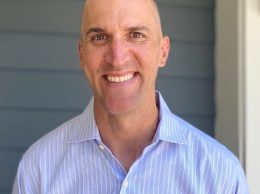
Loredana Carson
By Loredana Carson
In November 2014, only 203,783 out of 433,064 registered voters cast a ballot, according to the Ventura County registrar. Voter participation in general throughout California has declined in the past decade, according to the California Civic Engagement Project. The project reports that over the past three elections, registered voter turnout was 54.9 percent (2006), 58 percent (2010) and 41.8 percent (2014).
Why we should increase voter participation and how we can do it are two separate questions, but both deserve your time and attention.
Voting rights historically have been a focal point and a rallying cry for those disenfranchised individuals not originally granted the right to vote. But once secured, these rights are taken for granted and not exercised as vigorously as those who fought for them would have hoped.
There are two really good reasons to consider when deciding if you should make the effort to vote.
First, there are a lot of very important issues on the ballot this election, not the least of which is deciding who will serve as the president of the United States. In addition, voters will choose their representative to the U.S. Senate, U.S. House of Representatives, California State Senate, California State Assembly, judges for the Superior Court and, depending which part of the Tri-Counties you live in, your school board members and other local officials.
An additional factor is the large number of ballot measures too numerous to list in this space but including Proposition 64 CA Marijuana Legalization, Proposition 51 CA Public School Bonds ($9 billion in general obligation bonds), Proposition 56 Tobacco Tax Increase and Proposition 58 Non-English Languages Allowed in Public Education.
Many of these decisions can impact your business and professional life as well as the overall quality of life in the Tri-Counties. All of these issues are complex and require close scrutiny before casting a quick vote. The public is expected to be informed and the county and state put out literature for you to read and consider. Now is the time to start reading and thinking about these issues.
A second reason to solve the low voter turnout issue can be found by studying the Organization for Economic Cooperation and Development Better Life Index, which examines countries’ civic engagement statistics to better understand how people’s trust in their government relates to their overall well-being as citizens. It turns out to be a fairly important indicator of how governments function, as transparency and openness can correlate to lessening the occurrence of fraud, corruption and mismanagement of public funds (your tax dollars).
How to increase voter participation is more complicated. To begin to do so we need to understand first why people do not vote. The most common excuses are that voting takes too long and that people are just too busy. The ability to request a vote-by-mail ballot and vote early addresses these excuses. Some people complain that the current presidential voting system, in which the Electoral College determines the president rather than the popular vote, can be a disincentive. However, as discussed earlier, there are many issues at stake in the election and not voting because of the Electoral College issue leaves many other important items unaddressed.
Don’t just stop at casting your vote. Voting is a lifetime activity and getting young people to vote can increase overall participation. There are some obvious solutions here such as promoting Get Out the Vote campaigns on college campuses, allowing voter registration in high school and 12th grade government classes for 18-year-olds, and family discussions on the importance of voting. It turns out that peer and family behavior has a good chance of impacting an individual’s decision to vote.
So go on and be a good role model to your friends and family and talk up the benefits of voting. In doing so, you improve life in the Tri-Counties for everyone.
• Loredana Carson is an adjunct faculty member in the California Lutheran University School of Management’s Department of Policy Studies.






 Print
Print Email
Email

















